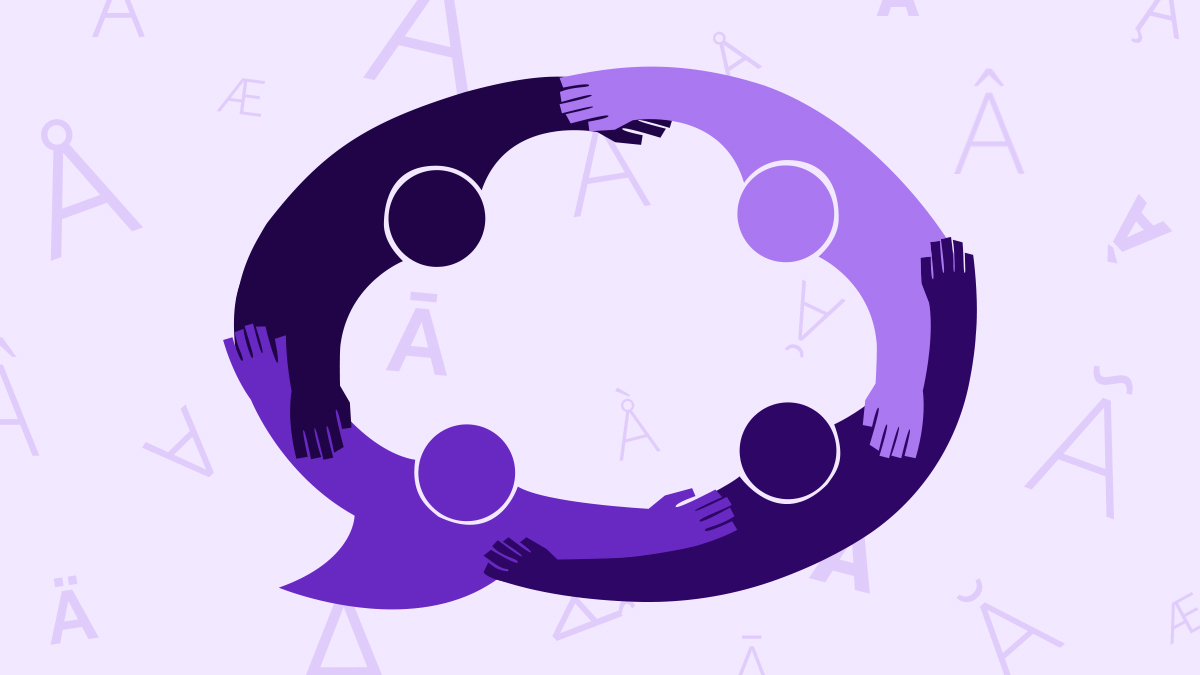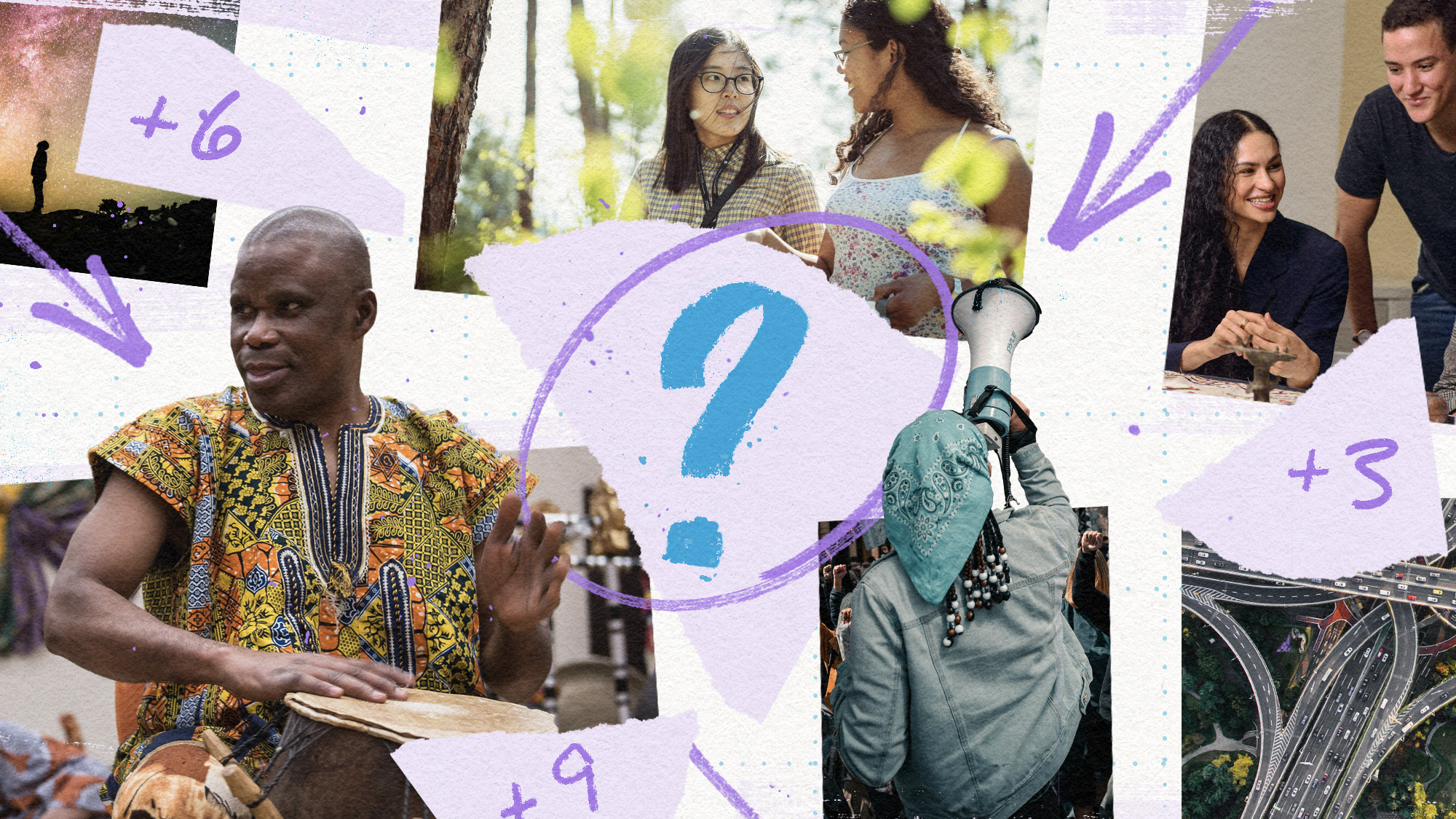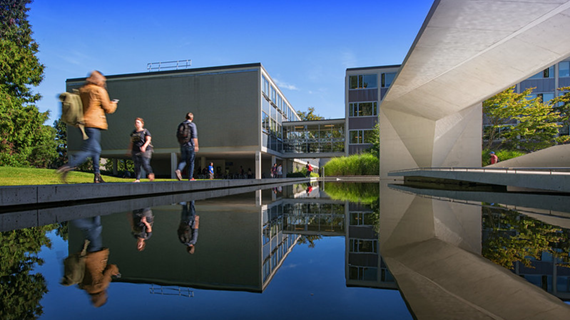

This fall, Arts Multilingual Week is celebrating the numerous ways that the languages we speak help shape our everyday lives.
The inaugural Arts Multilingual Week features students, scholars, and community members who will reflect on multilingualism as a practice, discuss career opportunities for multilingual graduates, and perform multilingualism through artistic means. Events will run from October 31 to November 4, 2022.
We sat down with organizers Dr. Biz Nijdam and Dr. Qian Wang to learn more about the experiences that Arts Multilingual Week has to offer.
What is Arts Multilingual Week celebrating?
Arts Multilingual Week highlights the multilingual world we live in where the more we recognize and acknowledge the role that multiple languages play in our mutual understanding, the more we appreciate the complexity and beauty of human communication.
More specifically, Arts Multilingual Week celebrates how we perform multilingualism at UBC. The UBC student body speaks more than 60 different languages and the university offers dozens of language, culture, and literacy programs across campus. With students and faculty perpetually learning, collaborating, and communicating multilingually, our vision for Arts Multilingual Week is to both showcase this experience, and to better support multilingual students and teaching through its programming.
Where did the idea for Multilingual Week come from?
The idea for Arts Multilingual Week came about as part of our belief in a perspective we’ve called “languages maximum”. Rather than adopting the narrowing perspective of “minimum requirements” for language studies, our aim is to maximize language learning to go beyond traditional assessment strategies and embrace all the languages our students speak simultaneously. We therefore advocate on behalf of students, faculty, staff, and community members speaking learned languages as well as heritage, Indigenous, and locally-predominant languages – many of which are not currently part of Arts teaching – to combat linguaphobia, nativespeakerism, accentism, linguistic racism, and language indifference.
“With students and faculty perpetually learning, collaborating, and communicating multilingually, our vision for Arts Multilingual Week is to both showcase this experience, and to better support multilingual students and teaching through its programming.”
What’s the value of multilingualism?
Contrary to public perception, the vast majority of the world’s population is either bilingual or multilingual. The value of multilingualism begins with a shift in perspective that pushes back on the misconception that English is a superior or dominant language. At the same time, multilingualism functions to help acknowledge and celebrate who we are as global citizens.
Leaning into a multilingual worldview also enhances multilingualism practices at UBC, which has a multitude of benefits. Shifting how students conceptualize their sense of selves and their participation in society can add academic and educational value to degree programs. In addition, a multilingual perspective also enhances creativity and critical thinking skills, raises cultural awareness, and teaches an appreciation of local and Indigenous languages.
UBC places a significant emphasis on the Indigenous Strategic Plan. What aspects of Arts Multilingual Week align with this plan? Why should students take the time to learn about Indigenous languages?
Any conversation about multilingualism would be incomplete without acknowledging how settler colonialism has worked to obliterate Indigenous languages. In this context, the connection between language and culture is at the very foundation of Canada’s systemic erasure of Indigenous languages. It is therefore important to celebrate the work of Indigenous scholars and activists who are working towards Indigenous language revitalization and Indigenous language sovereignty.
Arts Multilingual Week is an excellent opportunity to foster both of these conversations, with Wednesday, November 2 being dedicated to Indigenous languages. In collaboration with Indigenous scholars on campus, Arts Multilingual Week asserts that there is no celebrating multilingualism in Canada without concrete well-funded initiatives, and nation-wide learning around Indigenous languages. In this sense, Arts Multilingual Week supports the work of the Indigenous Strategic Plan by incorporating Indigenous ways of knowing, culture, histories, experiences and worldviews into the core of our understanding of multilingualism, while partnering with Indigenous educators in order to shape these conversations.
What are some events to look forward to during Multilingual Week?
Here are some exciting highlights of events taking place on Multilingual Week.
- An opening roundtable with Associate Dean Stefania Burk on “Why we study languages”
- Speech Contest on “What Multilingualism Means to Me”
- Multilingual Poetry Slam that has been integrated into over a dozen language courses across campus
- Digital media projects on “Untranslatables” will be exhibited online on the UBC Languages Hub
- A keynote address from Dr. Guofang Li, UBC Professor and Canada Research Chair in Transnational/Global Perspectives of Language and Literacy Education of Children and Youth
- Indigenous comics artist Cole Pauls presentation on his work on Indigenous language revitalization
- Comics scholar Katherine Kelp-Stebbins presentation on research from her new book How Comics Travel: Publication, Translation, Radical Literacies (2022).
- A workshop on American Sign Language (ASL) as well as a presentation by local celebrity and UBC adjunct professor Nigel Howard on the marginalization of the Deaf community and signed languages
- A catered Bollywood film screening
- Presentations from student groups


